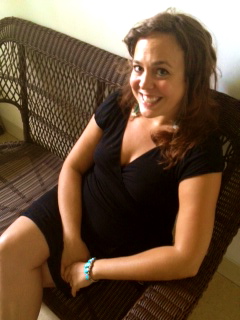Table of Contents
Emily Pulfer - TerinoPruningMy family left the last few acres of our split-up farm untended;
what grew grew wild and died. When my grandfather recalled to us the burgeoned apple trees, the corn, the bungalow for boarders, we were helpless in our lack of know-how. He told us how, in March, he thinned the fruit trees at the crown; watersprouts, whorls, shoots that crossed each other sheared above the bud, limbs with bugs or fireblight removed. New, dark apples gathered sun all summer, thickening on branches. At harvest, low hills splayed with aging corn, the sky with gawkish, southbound geese, he ordered hay in bales. That last fall when they visited, my grandmother sat in the kitchen, sick, skinny as a sapling, beaming over tea. Outside, he ruined all the apple trees, pruning out of season while we sat at the window, watching him remove the fruited branches. ReflectionMy father dismantled the crabapple tree
and said he had to leave. Everything had gotten out of hand. Spring, inclement days, the undertended yard yearned to outgrow itself. Even the house choked on its ordered contents. His need for change, our fear, that weather. But it was beautiful. My father left the flowered limbs around the trunk, under the tree—as though it blossomed upside down, or the tree was reflected in ground; as though nothing really changed. Property LineIt wasn’t the old stone wall that cut our land
in two, not the woods or that skinny, wild river that called us to the cold clay bank those first, thick August afternoons our father stayed away. We were kids; the end of our land, of the season, the end of our family still far from our minds. We wanted proof we’d been there, and we got it: warped bottles, bits of plate we’d dig up from the malleable ground. The river urged away. We’d bring our shattered findings to our mother and turn the orange earth into pinch-pots and people. She turned those pieces of eye-white china, veined with trees, with hills and cobalt farmers, under faucet water, clumps of clay slowing the drain. |
Emily Pulfer-Terino grew up in Western Massachusetts, where she lives and teaches English at Miss Hall’s School, a boarding school for girls. She holds a BA from Sarah Lawrence College and an MFA in Creative Writing from Syracuse University. She has received a Tennessee Williams scholarship for poetry at the Sewanee Writer’s Conference, and she was a creative non-fiction fellow at the Vermont Studio Center. Her work is published or forthcoming in Hunger Mountain, The Southeast Review, Poetry Northwest, Stone Canoe, The Louisville Review, Numéro Cinq, The Alembic, Oberon, and other journals and anthologies.
|

